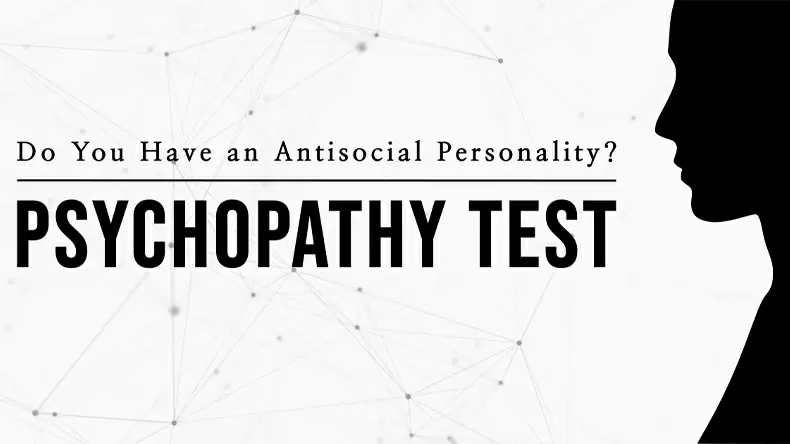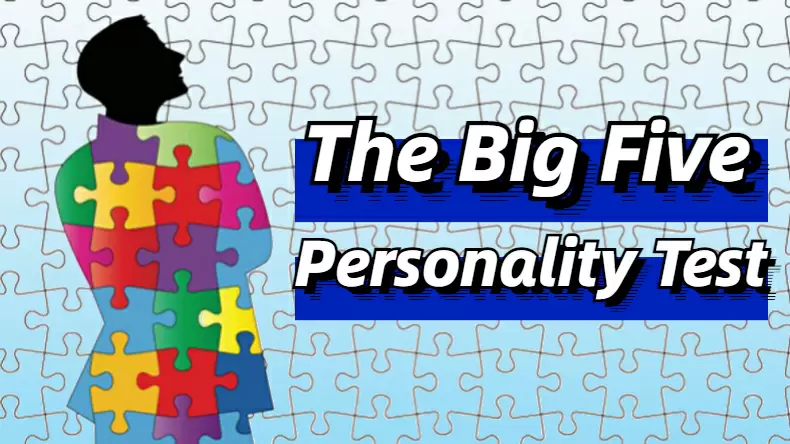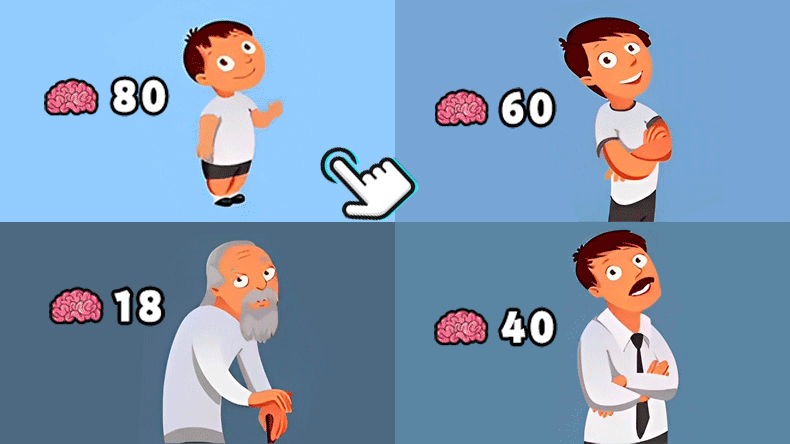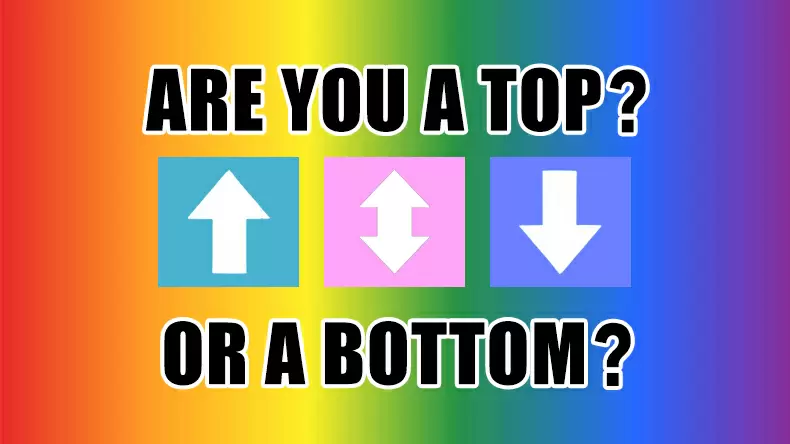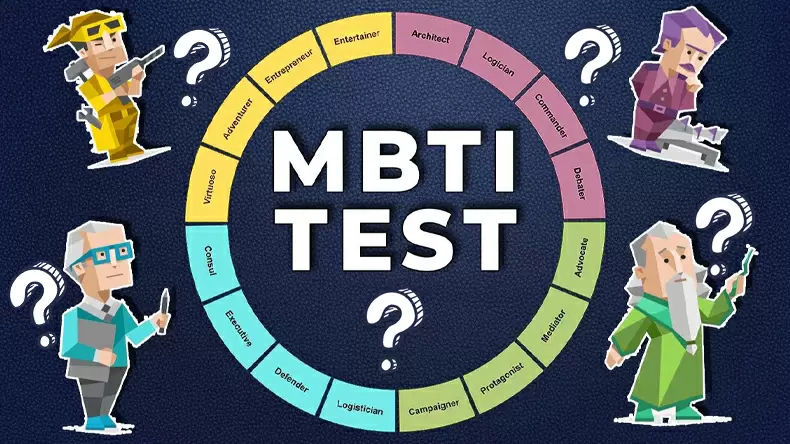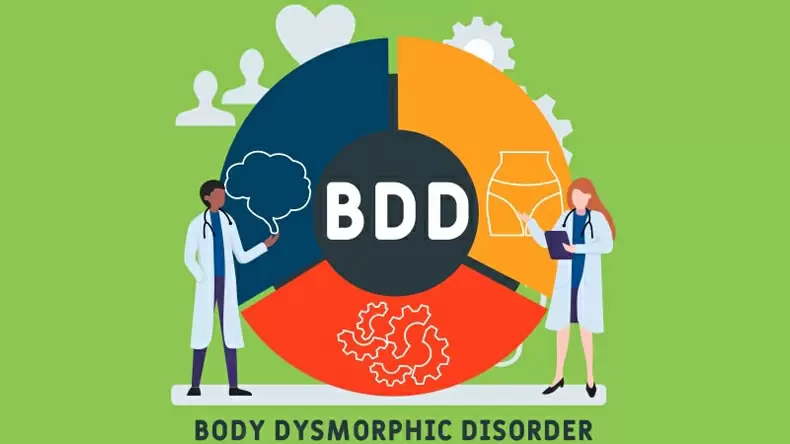Spiny Maze Puzzle
Explore your social tendencies and potential risk factors with our engaging Antisocial Personality Disorder Quiz.
Sociopathy or Antisocial Personality Disorder
Sociopathy is a mental disorder that involves antisocial thoughts and behaviors. The clinical term that describes this disorder is antisocial personality disorder, or ASPD. This disorder denotes a disregard for others’ rights and feelings. These are the signs identified in the sociopath test above. Those who are symptomatic in any of the online tests for ASPD may not have a clear conscience and may tend to violate what are generally known as legal and social boundaries. Additionally, sociopaths don’t exhibit remorse or guilt for actions that are widely considered to be “wrong”.
ASPD is mainly caused by environmental influences, such as childhood trauma. Given that personality is developed in childhood, an unstable or destructive home environment can put a child at risk for seeming symptomatic on this sociopath test. Those who have a family history of personality or mental health disorders can also be more likely to develop ASPD. In contrast, psychopathy is an innate - people are born with it. For this reason, ASPD is more common than psychopathy.
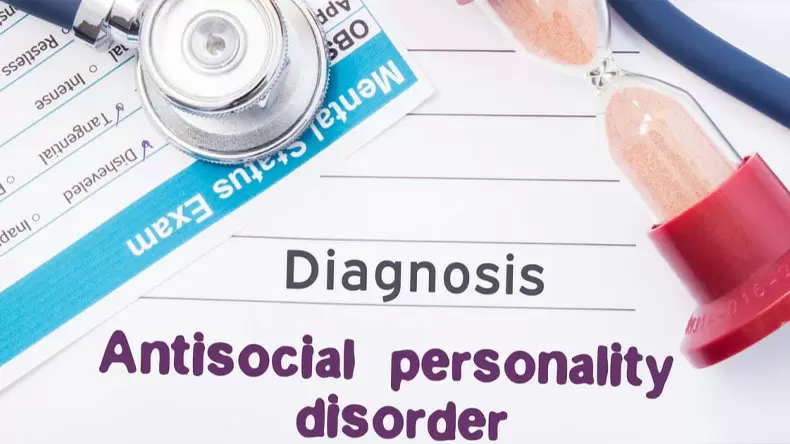
Is There a Difference Between Antisocial Personality Disorder and Sociopathy?
No! The correct term for discussing sociopathic behaviors is in fact antisocial personality disorder. Many will use the word sociopath colloquially.
Signs of Antisocial Personality Disorder
People can’t be diagnosed for antisocial personality disorder until they’re over the age of 18. At this point, an individual with ASPD will exhibit some or all of the following characteristics mentioned in the sociopath test:
Disregard for laws, social boundaries, and the rights of others
Impulsiveness and an inability to make long-term plans
Aggression, hostility, violence, and/or poor anger management
Arrogance, a feeling of superiority, and single-minded opinions
Lack of guilt, remorse, and/or empathy
Tendency to blame others for their problems
Poor or toxic relationships
Inability to maintain long-term relationships
Irresponsibility and a failure to manage obligations
Tendency to use charm and/or intimidation to manipulate others
Cynicism or contempt for others
Substance abuse
Most of the symptoms of a potential sociopath last for a person’s entire life. However, some symptoms reduce over time in certain individuals. This decrease in symptoms could be simply due to aging or a greater understanding of the consequences for this behavior.
Signs of ASPD can start to emerge in people as young as 15, but symptoms may differ slightly from above. At this age, symptoms may manifest as:

Rule-breaking without heed for consequences
Lying and attempting to mislead others
Stealing
Destroying their own or others’ belongings
Aggression or violence towards people or animals may be seen as sociopathic
How is ASPD Treated?
Since sociopaths rarely believe that they’re in need of treatment, it can be difficult for them to receive an official diagnosis. This quiz may be what one needs to understand their diagnosis. The intervention of loved ones is often needed for someone to receive professional help. Additionally, the willingness of someone with ASPD to receive treatment makes a significant impact on the treatment itself. Long-term treatment with follow-up visits to a doctor are required to successfully treat ASPD.
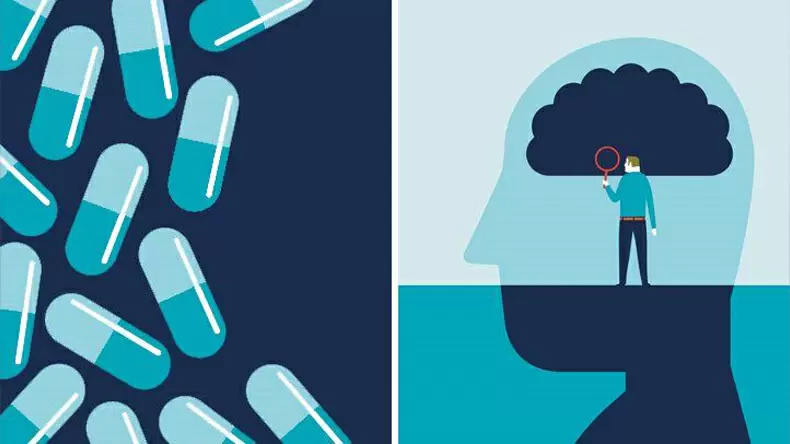
Generally, therapy and/or medications are the best strategies to reduce the symptoms of ASPD.
Treatment: Therapy for Sociopathy or ASPD
Psychotherapy and cognitive behavioral therapy can both be helpful in managing symptoms of ASPD.
Cognitive behavioral therapy, or CBT, can prompt sociopaths to reflect on their behavior and interactions towards others.
Treatment: Medication for Sociopathy or ASPD
While there is no medication that’s solely used in the treatment of ASPD, medications for other mental disorders can help improve the patient’s overall wellbeing. Depression, aggression, and anxiety commonly accompany ASPD and can be directly treated with medication.
If you or a loved one identify with the symptoms of ASPD or sociopathy, be sure to reach out to find support that you need and deserve today, remember that you are not alone.
Take our Sociopath quiz to gain insight into your social behavior and potential signs of antisocial personality disorder.
POPULAR
Smile Dating Test Quiz
Mine Clone 4
Quiz: Am I Straight - Test Your Heterosexuality
Super Mario Run
The Big Five Personality Test Quiz
The Powerpuff Girls Doodle Maker
Which BLACKPINK Member Are You? Quiz
The Smurfs Ocean Cleanup
Which Sanrio character Are You? Quiz
Peppe Pig Ice Skating
Picky Eater Test: Are You a Picky Eater? Quiz
Ninja Hands
Idiot Test: Am I an Idiot? Quiz
Garfield Checkers
How Can I Show Love? Love Languages Test Quiz
Clash Of Skulls
Sexuality Test: Discover Your True Colors Quiz
Tom And Jerry Matching Pairs
Mental Age test: What's your mental age? Quiz
Home Scapes
Are you A Top or A Bottom? Quiz
Cut The Rope 2
What Animal Am I? Personality Test Quiz
Disney Junior Holiday Party
16 Personalities Test - Find Out Your 16 Personalities Type Quiz
Worm Hunt - Snake Game Io Zone
Body Dysmorphia Test: Do I Have BDD? Quiz
Greenlight Redlight
Which Disney Princess are You? Quiz
Pinkie Pie Color Puzzle
Am I A Furry? Quiz
Drop N Merge
What is My Angel Number? Personality Test Quiz
Spongebob Saves The Day
Soldier, Poet, King Personality Quiz
Happy Glass
Which South Park Character Are You? Quiz
Among Us The Imposter
Lesbian Test: Am I Lesbian? Quiz
Garden Tales 2
Pooh Pathology Test: What's Your Winnie the Pooh Pathology? Quiz
Football Brawl
Gay Test: Am I Gay Quiz?
Hungry Shark Arena
BDSM Test: Exploring Your Kinky Side Quiz
Captain Sniper
Sissy Test: Am I Sissy? Quiz
Sonic Run Adventure
When Will I Die? Death Calculator Quiz
Fruit Ninja
Omegaverse Quiz: What ABO type Are You?
Candy Riddles Free Match 3 Puzzle
Harry Potter Quiz: Which Hogwarts house do you belong to?
New Quiz
What's Your Crush's Secret Thought About You? Quiz
What Eye Color Does My Future Crush Have? Quiz
What's the First Initial of Your Crush? Quiz
Which Plant Personality Are You? Quiz
Who Is My Digimon Partner? Quiz
Your 2025 Word Of The Year Quiz
